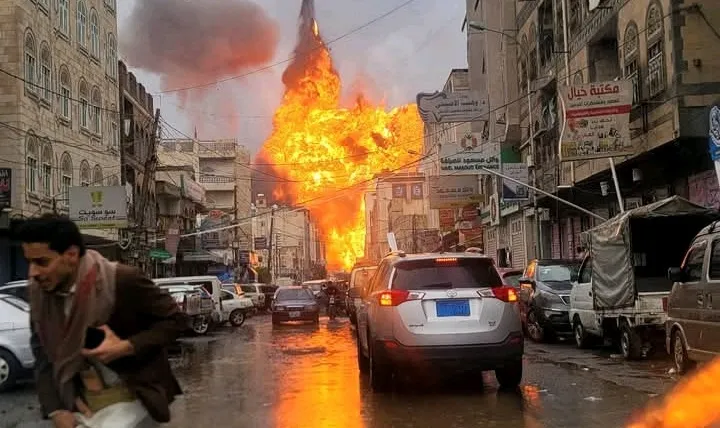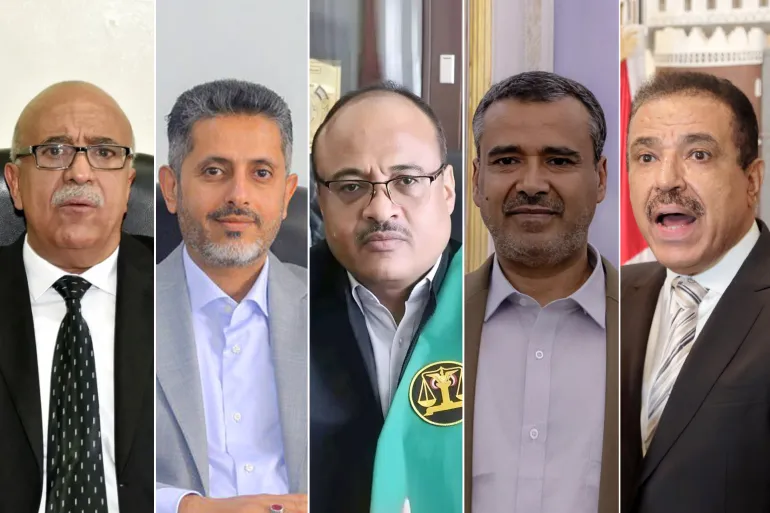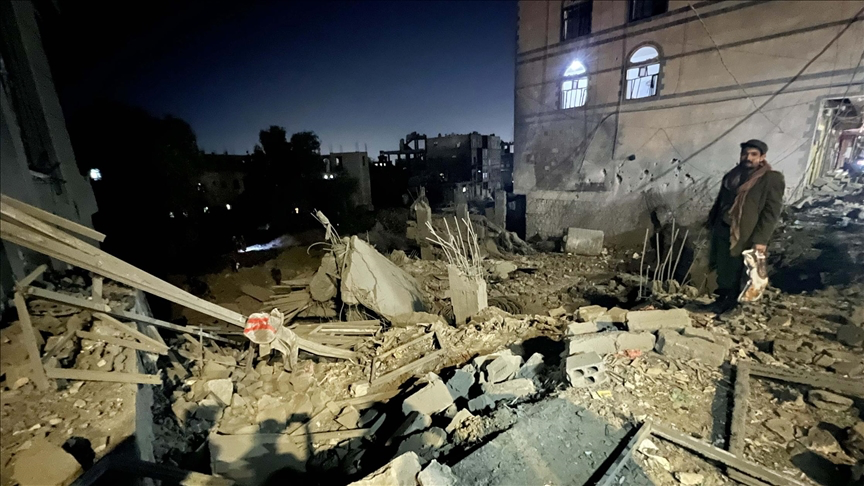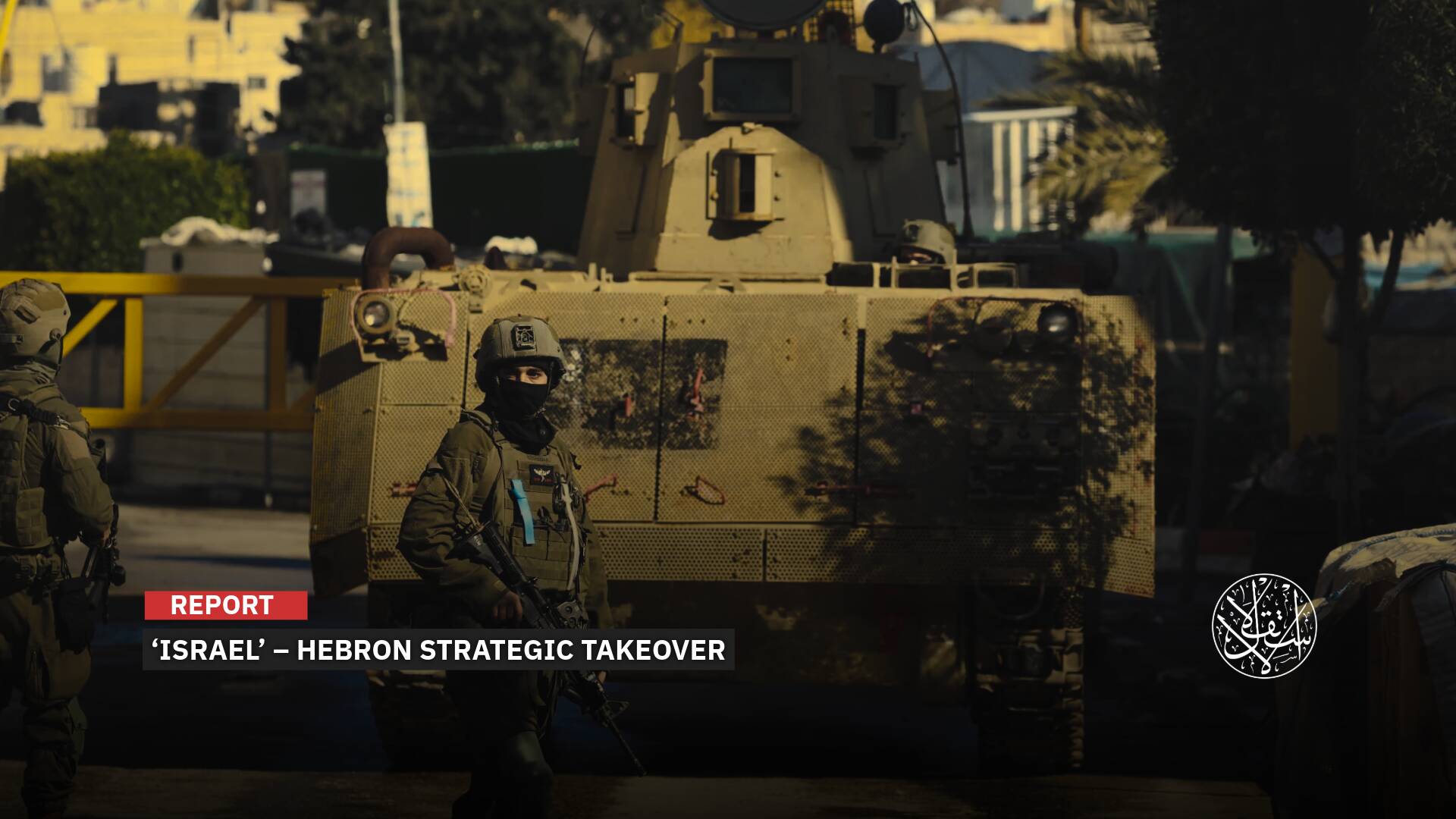After Mohammed al-Ghamari’s Assassination, Has ‘Israel’ Managed to Infiltrate the Houthis’ Inner Circle?

The Houthis announced that al-Ghamari was killed along with his son, without disclosing the date or location of the attack.
In what marks the second major blow to Yemen’s Houthi movement in less than two months, the group announced the death of its chief of staff, Mohammed al-Ghamari, in an Israeli strike, just weeks after a previous attack targeted the unrecognized Houthi government in Sanaa, killing its prime minister and several ministers.
The announcement, made on October 16, 2025, has raised questions about how al-Ghamari’s death might affect the Houthis’ military capabilities in their confrontation with “Israel,” and what it could mean for the future of that conflict following the Gaza ceasefire.
The Houthis offered no details about the circumstances of al-Ghamari’s killing, which came during a lull in hostilities with “Israel” after the Gaza ceasefire took effect on October 10.
The truce followed two years of devastating warfare, during which the Israeli war on Gaza left more than 67,000 Palestinians dead.

Major Breakthrough
Regarding the significance of al-Ghamari’s death, Yemeni writer and political analyst Yaseen al-Tamimi said that his assassination marked “a major breakthrough, as it targeted the chief of staff, a position that should be purely military within the structure of a movement that has effectively become a quasi-state in Sanaa.”
While al-Tamimi downplayed the likelihood of al-Ghamari’s killing dealing a devastating blow to the Houthis, he told Al-Estiklal that “the real significance lies in Israel’s ability to reach high-ranking figures within the group’s military hierarchy, which represents a major breach. As for the death of this figure or that, it is not decisive. These are military roles that another individual can fill.”
“The most alarming aspect is that there has been a breach, and not from the air but on the ground, meaning the group is not as secure as it claims. It is facing the same circumstances that Hezbollah in Lebanon once faced before its entire leadership structure was decimated. Yet Hezbollah survived, kept its weapons, and rebuilt its ranks,” al-Tamimi added.
The Yemeni expert stressed that “this breach, which led to al-Ghamari’s death, means such operations could be repeated, leaving the Houthis increasingly exposed to an adversary determined to inflict damage, unlike the wars the group fought with other parties,” referring to the Saudi-Emirati coalition.
“In light of Israel’s threats, the strikes could continue, keeping the group an open target for Israel, especially as both Israel and the United States link the Houthis to Tehran. There is also talk of a possible military confrontation with Iran, from which the Houthis would not be immune,” al-Tamimi continued.
In a report published by The Wall Street Journal on October 17, the paper described al-Ghamari’s killing as a significant loss for the Houthis’ command structure, suggesting it could have a strategic impact beyond any previous assassination, despite the group having already lost several senior figures.
The New York Times called al-Ghamari’s death “one of the harshest blows” to the Houthis’ leadership in years, but noted that the killing was unlikely to paralyze the group’s capabilities entirely, as its system of command does not depend on a single leader.
The Houthis have since appointed Major General Yusuf Hassan al-Madani as the new chief of staff, succeeding al-Ghamari, who had been among the group’s most prominent military commanders.
His name had repeatedly surfaced in connection with attacks against “Israel,” which had placed him on its list of targeted figures.

The Houthi Card
In the same context, Yemeni political analyst Abdul Baqi Shamsan told Al-Estiklal that “the assassination of al-Ghamari and most members of the Houthi government reveals an important truth, that this group, like other Iran-backed entities, has the capacity to find replacements if its leadership is targeted or eliminated.”
According to Shamsan, “whoever the replacement may be, it is usually to ensure the continuity of the group’s organizational, military, political, and combat mechanisms. However, assassinations inevitably cause a psychological shock, especially when senior figures are targeted.”
“The Houthis will be affected both morally and in terms of strength, even within Yemen itself, where reaching Houthi leaders had long been considered extremely difficult because of the country’s geography and their distance from Israel.”
“This targeting has had moral and military repercussions, as well as implications for Israel’s show of power. Israel has already dismantled Hezbollah in Lebanon, is striking Syria today, and is now hitting the Houthis more than two thousand kilometers from its territory,” Shamsan said.
As for the future of the conflict between the Houthis and “Israel” following the halt in Gaza operations, Shamsan said that “Iran now has only the Houthi card left in Yemen. Hezbollah in Lebanon is in a precarious position and no longer able to maneuver as before, the Popular Mobilization Forces in Iraq have been effectively neutralized, and Syria is now under new management.”
Although the war in Gaza has ended, Shamsan noted that “the Houthis have returned to square one by arresting United Nations employees under the pretext of espionage and detaining them in prisons.”
“These arrests serve to offset the group’s loss of morale, as they want to project an image of strength and immunity from infiltration, suggesting instead that international institutions were compromised and are to blame, rather than acknowledging Israel’s technical capabilities or the role of regional states sharing intelligence with it,” Shamsan said.
“The Houthis are exerting pressure and issuing threats toward Saudi Arabia, which needs security stability to advance its Vision 2030 project. This could push Riyadh either to engage in dialogue with the Houthis or to find a way to rescue Iran from its difficult situation following renewed UN sanctions.”
According to Shamsan, the Houthis “have lost their status as a politically acceptable actor internationally, as the global community gave them numerous opportunities, from the Kuwait talks to the Stockholm Agreement and other long negotiations, to become a legitimate participant in Yemen’s political field.”
“Israel will continue its attacks on Yemen, as Prime Minister Benjamin Netanyahu’s government faces domestic pressure for having achieved little in Gaza despite the destruction and loss of life. They had hoped to displace Palestinians and reoccupy the Strip.”
“Israel may launch further strikes against the Houthis at any moment, to achieve specific objectives or to rally Israeli public opinion and ease domestic tensions by claiming external victories and projecting strength against Israel’s enemies,” he added.
In light of these developments, Shamsan believes that “the Houthis may open new internal fronts in Marib and Taiz, using the pretext of pursuing spies and traitors, while suppressing dissent amid a worsening salary crisis. They could also open regional fronts, particularly in the Red Sea and international waters.”

Breach of the Wall
Al-Ghamari was not the most senior figure targeted by “Israel” within the Houthi ranks. On August 28, an Israeli airstrike on Sanaa killed the head of the Houthi government, Ahmed Ghaleb al-Rahawi, along with nine ministers, the prime minister’s office director, and the cabinet secretary.
Commenting on the implications of “Israel’s” targeting of top Houthi officials and the extent of its infiltration of the group, Yemeni military expert Mohammed al-Kumaim said, “This strike was powerful in both scale and precision, given the stature of those targeted, as it hit an entire government, including its prime minister.”
In an interview with Al-Estiklal on September 5, al-Kumaim explained that “the strike confirms that Israel has managed to create a breach in the Houthis’ leadership structure, despite the group’s efforts to avoid the mistakes made by Iran and Hezbollah by securing its movements and communications.”
“The Houthis’ failure to avoid those costly mistakes stems from Israel’s technological and military superiority, which far exceeds that of other actors.”
“This event is significant and will have lasting consequences. Israel realized that striking Yemen’s infrastructure in the past did not alter the group’s behavior, so it decided to deliver a major decapitation strike instead.”
According to the Yemeni expert, “the Israeli attack succeeded in paralyzing the Houthis’ internal capabilities, and such operations will have far-reaching effects on the group’s military standing.”
Since November 2023, the Houthis have targeted ships linked to Israel in the Red Sea, later expanding their attacks to Israeli territory with missile strikes. Israel responded with a wave of heavy bombardments on vital facilities in Yemen, marking the second time it has assassinated senior Houthi figures.
The Houthis announced the death of their chief of staff, Mohammed Abdel Karim al-Ghamari, one of their most prominent military leaders, saying he was killed “while performing his duty,” according to the group-controlled Saba news agency.
In its report on October 16, the agency said that al-Ghamari had been killed along with his son and several aides in joint U.S.-Israeli air raids on Yemen during what it described as “operations in support of Gaza,” without specifying the date. It added that the conflict with Israel was far from over, vowing that Israel “will face retribution for its crimes.”
Following the announcement of al-Ghamari’s death, Israeli Defense Minister Israel Katz said in a statement, “The Houthi organization has just confirmed that its chief of staff, who was targeted in the powerful strike that wiped out most of the Houthi leadership in Yemen, has died of his wounds, joining his fellow members of the defeated Axis of Evil in the depths of hell.”
On December 24, 2024, Katz had publicly threatened that “Tel Aviv” would also pursue senior Houthi leaders, saying, “We will strike the strategic infrastructure of this terrorist organization and cut off the heads of its leaders, and that is what we will do in Hodeidah and Sanaa as well.”
Earlier Israeli attacks had mostly targeted Yemen’s civilian infrastructure, including ports, Sanaa airport, power stations, and fuel storage sites, on the grounds that they were being used by the Houthis.
Sources
- Israel’s assassination of senior Houthi leaders: strategic shift or tactical operation? [Arabic]
- Houthis announce the death of Chief of General Staff Mohammed al-Ghamari [Arabic]
- Israel officially declares Gaza ceasefire agreement in effect [Arabic]
- Death of Houthi Chief of Staff Mohammed Abdul Karim al-Ghamari [Arabic]












